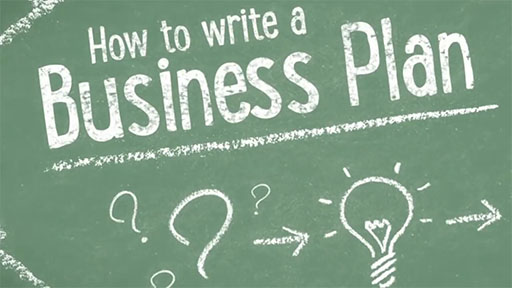2 Developing a business plan
Many freelancers start their business without a fully thought through business plan and this doesn’t cause them any problems, particularly if they don’t need to look for external investment. However, without that more holistic perspective of your business or creative idea, it can be more difficult to progress and grow.

Lesonsky (2018) suggests the following reasons why having a business plan is a good idea:
You’ll have to think through all aspects of your start-up – creative people are often full of ideas and excited about doing something new, but less keen on the practical elements of freelancing such as marketing and finance. Writing a business plan will force you to focus on the aspects that may interest you the least and it will give you a blueprint for success.
Note: you will often have to send a version of your business plan to funders to demonstrate the validity of your concept or idea.
You’ll spot problems ahead of time – uncovering potential problems during the planning phase will help you to avoid those obstacles once you’re up and running.
You’ll be ready for anything – if someone unexpectedly offers to invest in your business, you’ll have a plan ready to hand over rather than having to stall them while you quickly write one.
You’ll be able to explain your idea better – if you’re trying to convince a potential partner or supplier of the merits of your business, showing them your business plan can be easier than trying to explain it to them.
You’ve got a lot of help – there is plenty of support available, both online and in person (see Week 3). You can even download template business plans to fill in.
Watch Video 2 from Business Wales to see what a business plan should include.

Transcript: Video 2
Which top tip is the most memorable for you? It will probably highlight a strength or a weakness – such as your creative design skills (‘Use visuals!’) or tendency to write too much (‘Get to the point!’).
If you like the idea of creating a more detailed business plan, there are many resources available. See the Further research section for a link to templates and financial tables from the Prince’s Trust. They are a useful starting point as they are aimed at young people with limited business experience and so use more straightforward language.
If you don’t need a business plan to win over investors, then you might find a less formal, shorter version useful. Some businesses prefer to call it a development plan. This can also be a useful tool in understanding the trajectory and growth of your work.
In fact, many business owners have two versions – a formal, but positive plan to share with outsiders, and a more detailed plan for your own use – open about areas of risk and issues to address.
Seminega (2015) suggests the following headings for a one-page business plan:
- Business overview – short and to the point, a summary of your purpose and vision.
- Target customers and ideal clients – who will actually buy what you sell? Demonstrate the need for it.
- Competition and competitive advantage – who are your competitors and why is your idea better or different from theirs? What are the opportunities that their failings bring you?
- Human resources – only include if you are employing staff or collaborating with other freelancers.
- Marketing plan – how will you communicate with your audience and tell them about what you do?
- Operations – what are your business processes? Work through every step.
- Financial – how much money do you need to get started? What will you be selling? What are the profit margins? What are your other streams of income?
